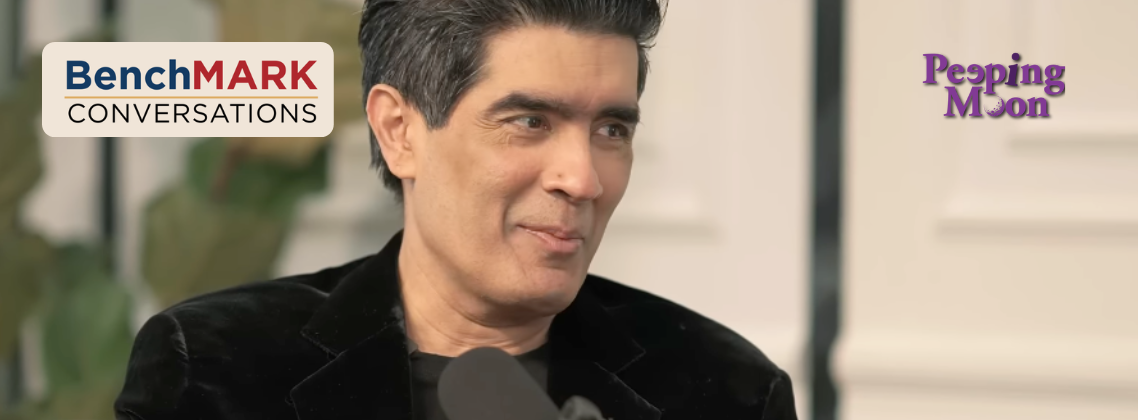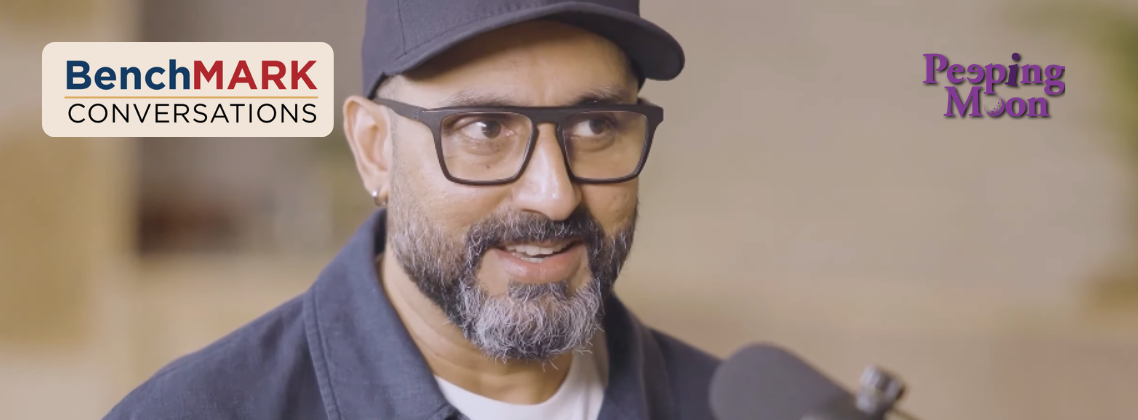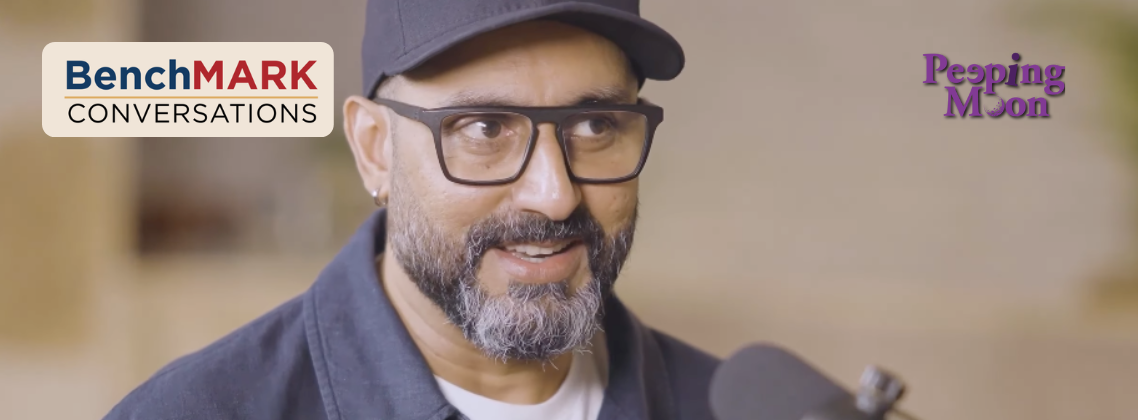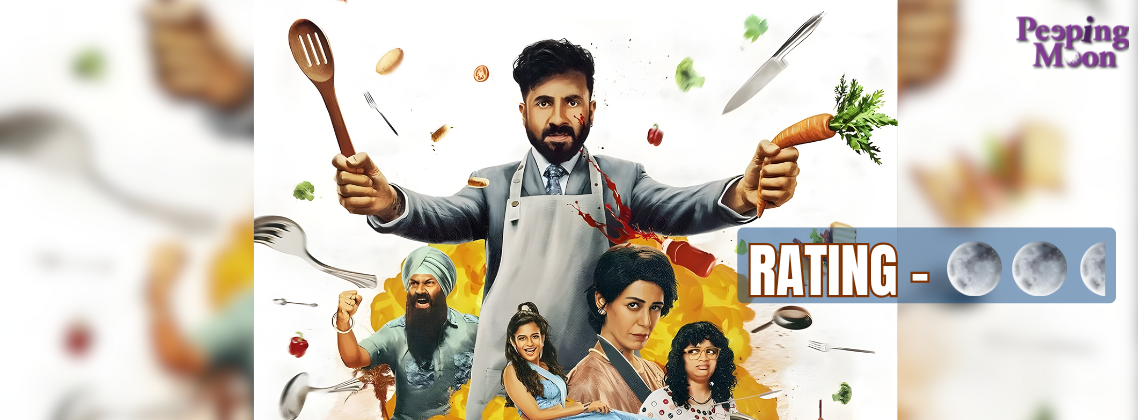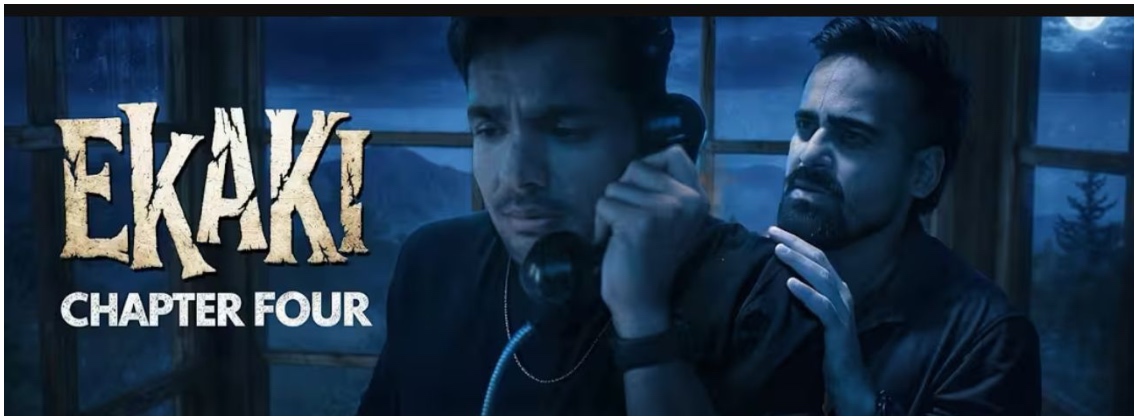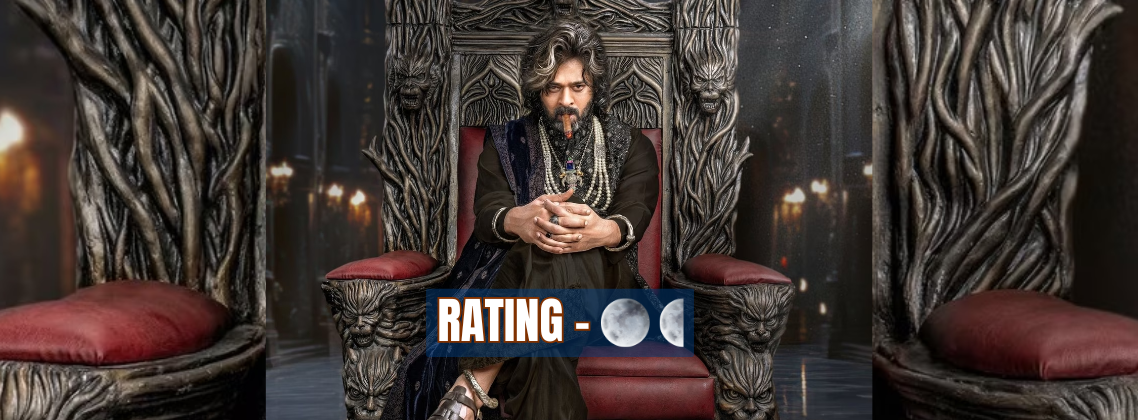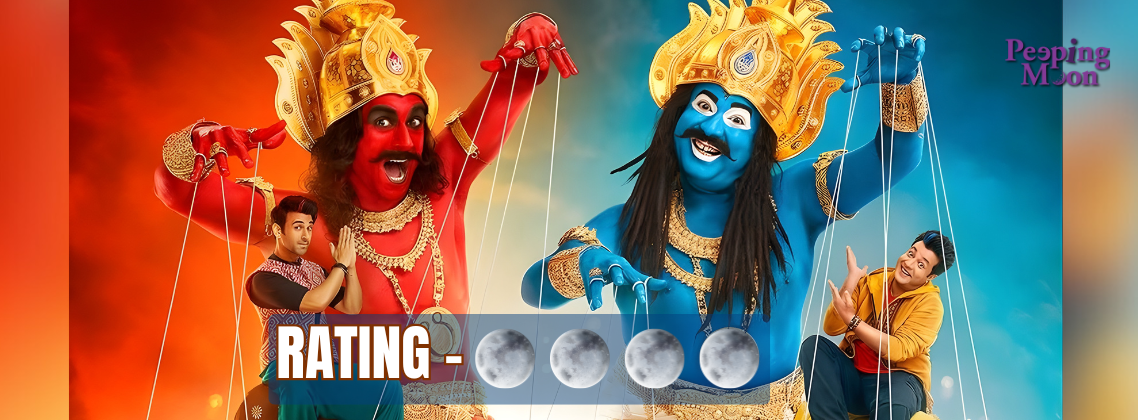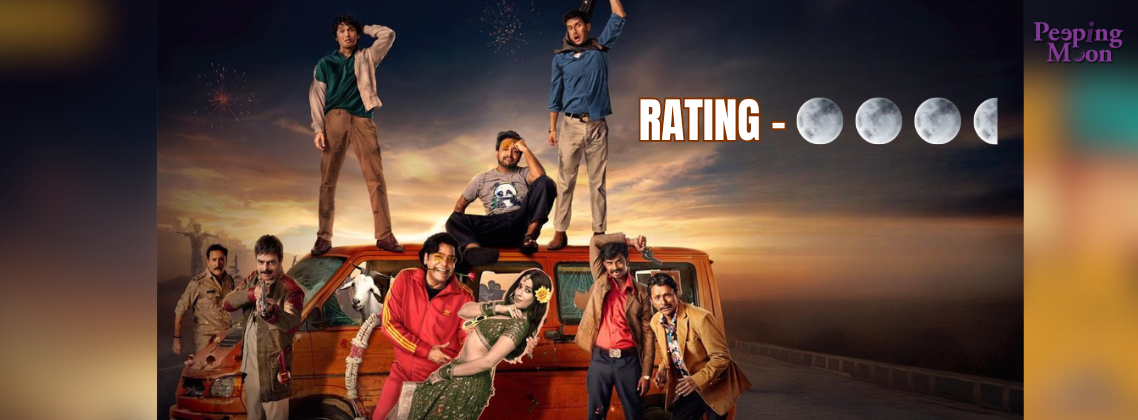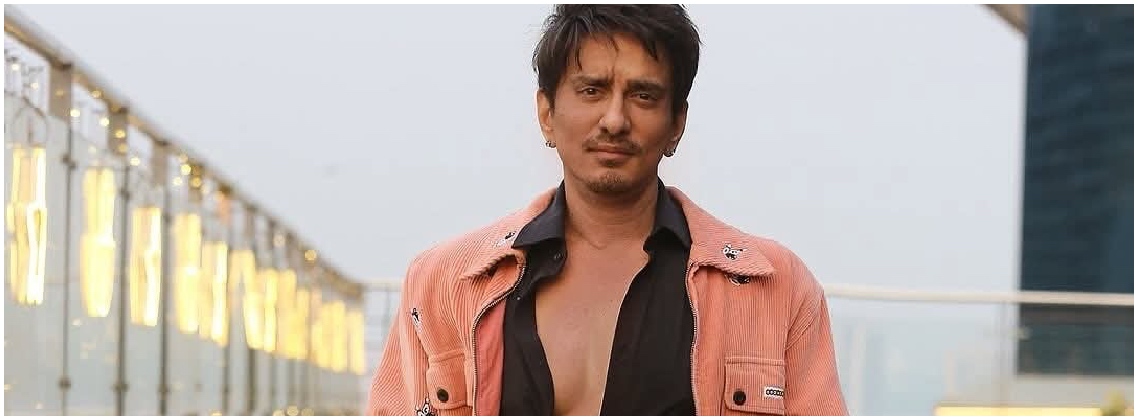Raj Kumar Gupta makes the kind of films I like to see. They are raw and gritty. And talk about real events and true heroes. These are the words of Arjun Kapoor who is working on Raj’s espionage thriller India’s Most Wanted as an intelligence officer. It went on the floor last week. Without revealing much, Raj let me know the film is inspired by true events. It’s the story of the mission to capture India’s most wanted terrorist without a single gunshot being fired. I was confused. Wasn’t Dawood Ibrahim designated a global terrorist in 2003? And named No. 3 by the FBI on The World’s 10 Most Wanted Fugitives list? But Dawood is still in hiding. Who could be more wanted than him? Raj smiled at me secretively. I didn’t push it. He knows his business. He’s not made too many films. But if you remember his 2011 biographical thriller No One Killed Jessica and saw his IT crime drama Raid last year, you will know what I mean.
I met the film writer and director who made his Bollywood debut ten years ago with the psychological thriller Aamir to discuss IMW. We talked about everything, including Raj’s recent marriage to NOKJ actress Myra Karn, but his next film. He’s got a studio apartment kind of office in a Juhu high-rise with glass windows running all around. It looks as cozy as somebody’s home. And smells of coffee. It’s whitewashed and spacious. The furnishing is eclectic. It has a rocking chair, wooden furniture, cane moras, potted plants and a dining table around which his team sat and worked silently on laptops. An elliptical machine stood in one corner for when Raj wants to exercise. Huge posters of Aamir, NOKJ, Ghanchakkar and Raid adorned the walls. And clapping boards of some films were on a wooden stand along with his trophies and awards and a football from the Australian Football League’s Hall of Fame. He also has large frames of Hitchcock’s Psycho, Clint Eastwood’s The Good, the Bad and The Ugly and Federico Fellini’s Italian comedy Amarcord. And a glass cupboard full of Hollywood movies several of them being Billy Wilder’s whom Raj hugely admires. In his study, over steaming mugs of coffee, we spoke. Outside, the rain lashed his windows. I noticed an unusual penholder on his desk. It said, “Due to recent cutbacks, the light at the end of the tunnel has been turned off.”
Recommended Read: ‘My kids are my Taj Mahal, my Eiffel Tower’ says Helicopter Eela mom Kajol
Excerpts from the interview:
From Aamir in 2008 to making India’s Most Wanted in 2018, you’ve been in Bollywood ten years, how have you changed as a director?
Filmmaking has changed. Digital has come in. The kind of opportunities that are there have also changed. When I did my first film, it was a small film that really worked and inspired a lot of filmmakers to also make small films. For some reason, there was a gap between 2010 and 2013, but now small films are being made again. It’s a form of telling your story in limited space and time. There are people who believe in short films and put money in them. And there are people who like to watch them. The audience wants good content. As far as I’m concerned, all my films have been different and the audience has been receptive of them. There’s not been much change in terms of approach. Everybody always wanted to make a good film. But changes have taken place in the platforms. Things have become aggressive. But also more professional. The digital platform has come in so there’s a lot of opportunity for somebody young who wants to start out and do different stuff. Not just filmmakers but also cinematographers, music directors, everybody for that matter. However, from an emotional point of view, I’m hoping that the passion for telling a story remains the same. As a filmmaker, as a director, it’s always about telling that one story that you always wanted to. And I’m hoping people continue to work hard on direction and that never changes.
For me, the connectivity is important. That is what the grittiness and rawness is. It’s real life.
You started off and got known for NOKJ in 2011. What made you pick that subject for your debut as a writer and director in Bollywood?
The story itself. Although it came out of a tragedy. But the way this story grew in real life, how people came together to get justice for somebody who was gone and a sister who was fighting against all odds, was something happening which I had never seen before. You remember the candlelight marches? We had not seen that kind of movement before. That was my inspiration. I thought it was a story that needed to be told. One of the first big social movements that you would remember. It became a milestone. I thought that milestone should also be in cinema. That’s how NOKJ came together. It was just my second film. I had no volume of work that included big hits. There was a lot of reservation about doing a film like this. A woman-oriented film. But I didn’t go about it like my protagonists were two women. I just remembered that my film had two protagonists.

Arjun Kapoor, your hero in IMW, says your films are raw and gritty and talk about real events and true heroes…
I feel a lot of emotional connectivity with real life situations and true life people. When I have such a connect with an incident, I am able to tell that story in the best possible way. I need that motivation. And because I am telling a real story in cinematic form, cinema needs to come in. I have to add fictional characters. But keep the raw grit in the story that the real life incident had. Otherwise, I will start to feel as if that incident didn’t happen in my world. And I will lose that connect. For me, the connectivity is important. That is what the grittiness and rawness is. It’s real life.
I think about basic human emotions in terms of a story.
Is IMW a patriotic film like the ones Bollywood has just seen?
Not at all. If you look at my films, I just think about the story, nothing else. Not even the cast. So leave aside patriotism. I think about basic human emotions in terms of a story. What is the basic human emotion that inspired a person to go into that zone and against all odds do the thing he or she has done? Is there something there? A story that needs to be told? IMW has been with me for four years. The story didn’t come to me suddenly. I was inspired by it. I took one year to research it and one year to write it.

How and where did you come across this story?
I can’t go into details. But the story is inspired by real life. I read about it and then started my research. I also met a lot of people. That’s how everything comes together. For me, it’s always been something I’ve read or I’ve heard that suddenly touched me. But lot of times things grabbed my attention and when I went deeper into the story, started researching it, meeting people connected with the story, I’ve realized that there was not much in it. I’ve had to then step back and ask myself, is this story worth telling or not?
As a filmmaker, all I’m thinking of is telling the best story that can possibly be told.
How many stories came your way that you didn’t take forward?
Oh, many. After NOKJ, probably 80 % of the real life films Bollywood made were first offered to me. I won’t name them. I could not take up everything or wanted to. Some later did well but had not appealed to me initially. And some stories that appealed to me initially didn’t amount to much later when I began reading into them. But after Jessica and now Raid, people have started calling me to tell me their stories or give me their books. But I can’t do so much. As a filmmaker, I would ideally want to do one film a year. You know how things are here. And if I am able to do one film in a year-and-half or two years, it’s a great ratio. So I turn very picky. I have to absolutely trust the story and it has to appeal to me because I consider myself a human being first and then a filmmaker. And if I am impacted by a story I’m hoping that 90 % of other humans also feel the same emotion.

You’re saying you see the story as a member of the audience first?
No, no – as a human being. If I am able to connect with the emotion in the story then other people will also be able to connect. At that moment, I don’t know if the film will be made. Whether it can be made. Whether I can cast it and get a producer on board. So the audience doesn’t come to my mind. The audience comes to my mind once the film gets made. The only thing I think about is how would another human being react to this story, this emotion, that’s how filmmaking starts for me.
I have to absolutely trust the story
Ajay Devgn and you proved yourselves with Raid…
Ajay Sir is such a brilliant actor, look at his body of work, the experience he has. As for me, I’m grateful that whatever films I have done, and the stories I thought would appeal to people, have worked. I worked on them sincerely, used whatever craft I have as a director, so it felt great. Though Ghanchakkar had extreme reactions. Yet there were people that loved it. And the film was close to my heart. I was happy that Raid with Ajay Sir also worked. When working with this kind of talent, I look forward to creating something very different, something which people have not seen before and which they will like, and I’m grateful that it worked.
It took you five years after Ghanchakkar to make Raid. Why?
It’s not like I didn’t want to make a film in the interim. But, like I said, lot of times I spent working on something that appealed to me but didn’t come together. And when working on them, I didn’t look at a time frame. I was only reminded that it was five years since I made a film when people told me. IMW I was keen on from the start. But Raid came in between and I decided to make it first. I don’t look at time frames. As a filmmaker, all I’m thinking of is telling the best story that can possibly be told. Films become part of history and our filmography and we get limited opportunity to make films – so why not make the kind of films we can stand by and really trust?
IMW is believed to be the story of Ravinder Kaushik, a commoner who went undercover for RAW and joined the Pakistan Army, and from there used to send valuable information to Indian defence sources. He was given name Black Tiger by Prime Minister Indira Gandhi herself. Alia Bhatt’s last film Raazi was something like this…
No, you are confusing IMW with some other story. Somewhere the press has gone wrong with IMW. This is a different story. I have not seen Raazi. But IMW is not like that, either. I cannot go into details. But things are working out.

Your marriage to Myra in June is the stuff Bollywood dreams are made of. A director marrying the girl he cast seven years ago. Despite the genre of cinema you make, you have turned out to be a romantic at heart!
What can I say? I told you I think like a human being. I have emotions!





